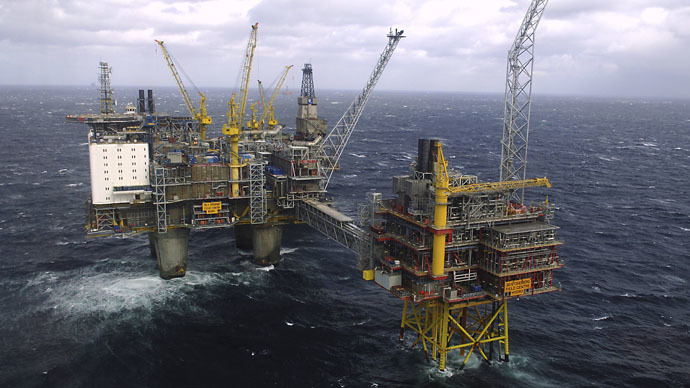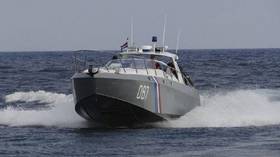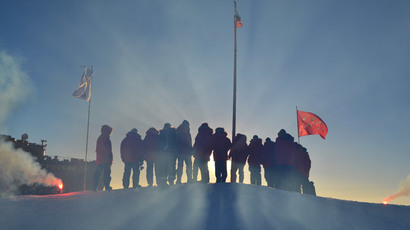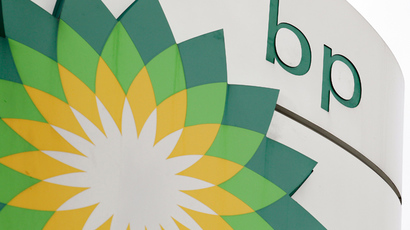US re-approves oil exploration in Arctic as Shell prepares to resume drilling

The US Interior Department upheld the 2008 lease sale in the Chukchi Sea off Alaska, the first step in allowing Royal Dutch Shell to reopen its oil and gas exploration in the Arctic after halting operations due to a series of mishaps and legal setbacks.
On Tuesday, the Obama administration affirmed the opening of about 30 million acres of US Arctic waters to oil exploration after a thorough environmental analysis and substantial opportunity for public input, the Interior Department said in a statement.
READ MORE: Obama admin. approves regulations for oil drilling off Alaska
“The Arctic is an important component of the Administration's national energy strategy, and we remain committed to taking a thoughtful and balanced approach to oil and gas leasing and exploration offshore Alaska,” said Interior Secretary Sally Jewell. “This unique, sensitive and often challenging environment requires effective oversight to ensure all activities are conducted safely and responsibly.”
The next step is for the Interior's Bureau of Ocean Energy Management to consider Shell's exploration plan and perform an environmental assessment on it, which could take at least 30 days.
Shell had already begun moving drilling equipment into the area in anticipation of the Obama administration’s decision.
“Clearly Shell and others will resume drilling and exploration up off the North Slope of Alaska,” Admiral Robert Papp, the special US envoy to the Arctic, told Reuters in an interview during a visit to Canada on Monday. “I think Shell is putting significant resources into this to make sure they have enough people, equipment, resources, redundancy. They should be OK.”
In 2008, the US government sold license blocks of the Chukchi off the Alaskan coast. The bid for the anticipated sale jumped to a record $2.66 billion in bids, $2.1 billion of which Shell paid.

The Interior Department initially granted Shell permission to begin tentative drilling in the Chukchi Sea in August 2012, a step forward in the company’s efforts to develop lucrative Arctic reserves.
However, Shell was only allowed to begin preparatory work and could not drill in the oil fields until the government verified its spill containment system, the US Interior Department said.
But after two serious drilling rig accidents slowed the company's operations in the area, Shell announced in February 2013 that it would temporarily abandon efforts in Alaska’s Beaufort and Chukchi Seas.
In one of those incidents, Shell decided to drag its top rig, the Kulluk, around 1,700 miles through frigid Arctic waters despite warnings from the tow ship’s captain, all in a rush to avoid an upcoming tax liability about to go into effect after 2012.
The Kulluk, reportedly carrying 150,000 gallons of fuel, eventually broke free from the towing ship, floating off into an ecologically-sensitive area. The rig and its crew had to be rescued by the US Coast Guard, which later released a report on the incident that slammed Shell for “inadequate assessment and management of risks.”
In January 2014, the Ninth Circuit Court of Appeals ruled that opening up US Arctic waters to oil exploration in 2008 was illegal because the environmental risks of drilling had not been correctly assessed.
Because of that decision, Shell decided to extend its self-imposed moratorium on drilling in the Alaskan Arctic, saying that the ruling eroded the project’s viability.
In February, the Obama administration issued new rules as part of the first step in supporting oil and gas production off of Alaska. Among the rules handed down by the Department of the Interior was the requirement that companies drill a relief well to contain an uncontrolled spill before ice sets in in the Arctic.
Environmentalists fear that the remoteness of the Chukchi Sea and the near-total lack of infrastructure mean the consequences of a drilling accident could be disastrous. A study published in May found there is a lack of both scientific data and preparedness on the part of private and public entities to properly address an oil spill in the Arctic Ocean.
Oil industry interests say the Arctic will be important to the country's energy security in coming decades when output from shale formations wanes.














